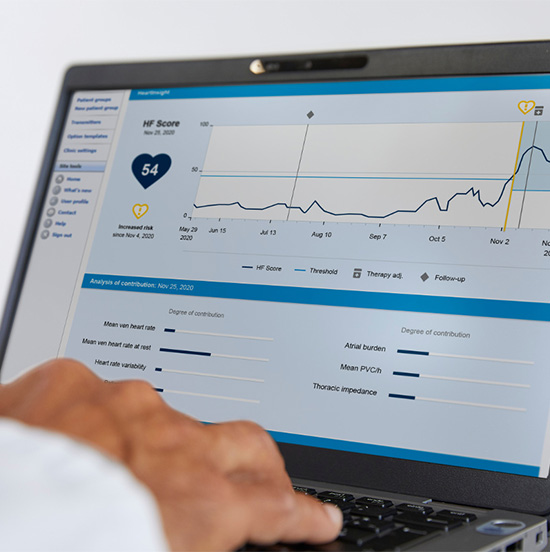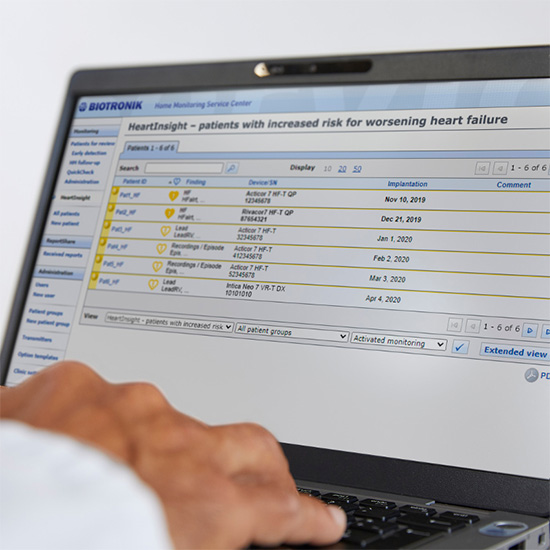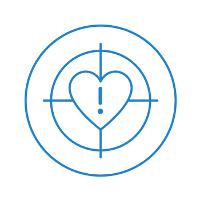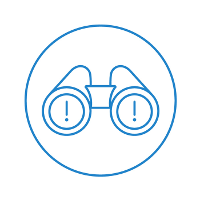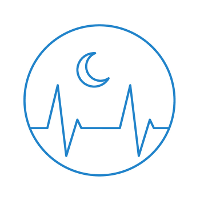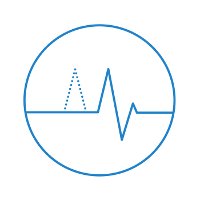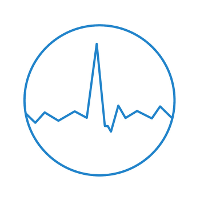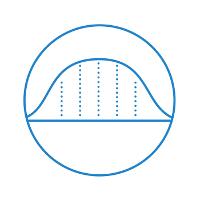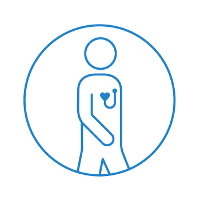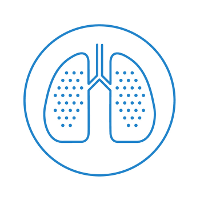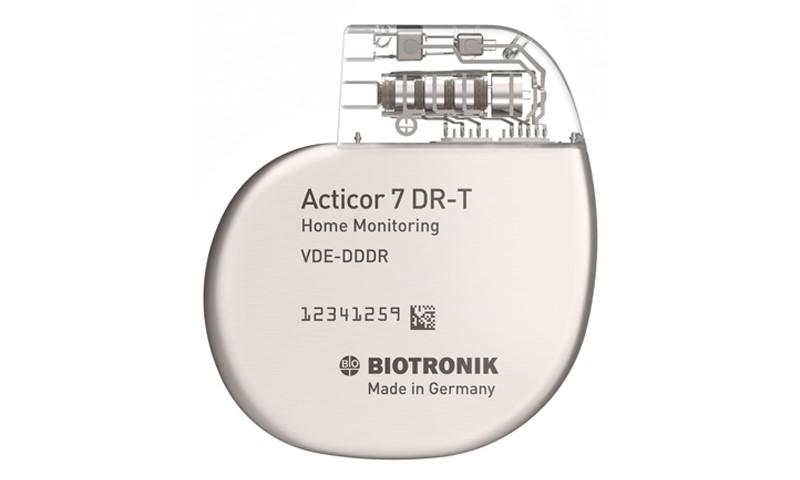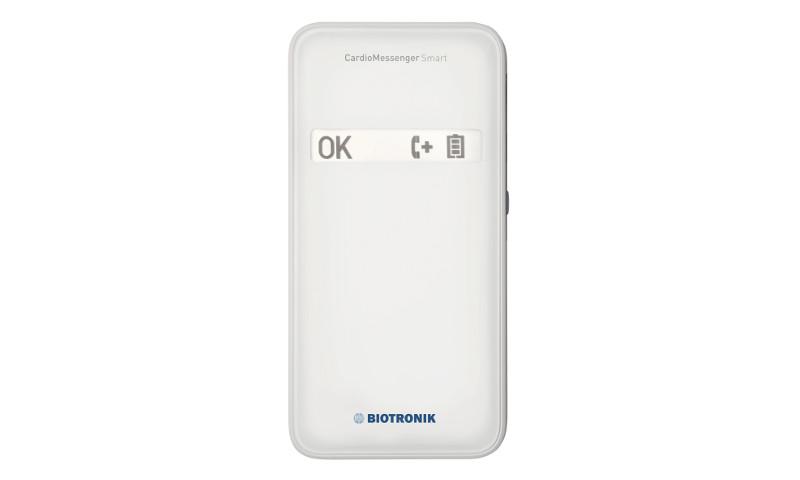HeartInsight – Heart Failure Management Solution
66%
Sensitivity
Predicting 2 out of 3 heart failure hospitalizations
42
Days
Alert time (median)
0.7
False Alert Rate ppy
Only 1 false alert every 17 months
HeartInsight – Being One Step Ahead Can Make All the Difference
HeartInsight shifts heart failure management from detection to prediction to allow clinical teams to focus their valuable time on those who need them the most.
Overview
Clinical Facts
Clinical Workflow
Media
One Accurate Alert
For Identifying Patients at Higher Risk of Worsening Heart Failure
Receiving multiple inaccurate alerts with vague actionability is inefficient and time-consuming. HeartInsight is different: It provides a single alert to support confident decision making. This enables you to spend less time on false alerts and focus on the patients that need you most.
- 66% alert sensitivity, predicting 2 out of 3 heart failure hospitalizations.6
- Low alert burden, with <1 alert per patient year (ppy).8
- 0.7 false alert rate ppy (industry-leading: one false alert every 17 months).5
- One dedicated list for patient stratification helps prioritize tasks.
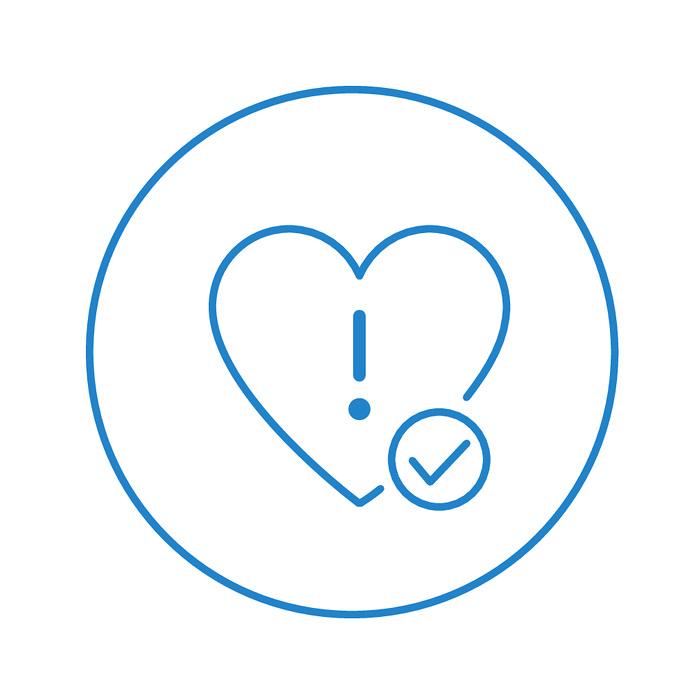
One Insightful Dashboard
For Supporting Confident Decision Making
With a growing cardiac device population, gathering and interpreting data to determine patient status is becoming more cumbersome and complex. HeartInsight helps streamline this process by organizing information clearly and intuitively.
- All-in-one alert: 8 parameters combined into one score and trend.
- One dashboard and report for all relevant information.
- 91% daily transmission success rate, based on the proven and reliable BIOTRONIK Home Monitoring® platform.6
- Dedicated patient list, action log and pdf report to facilitate collaboration between clinicians.
- Provides swift EHR integration, enabled by DataSync.
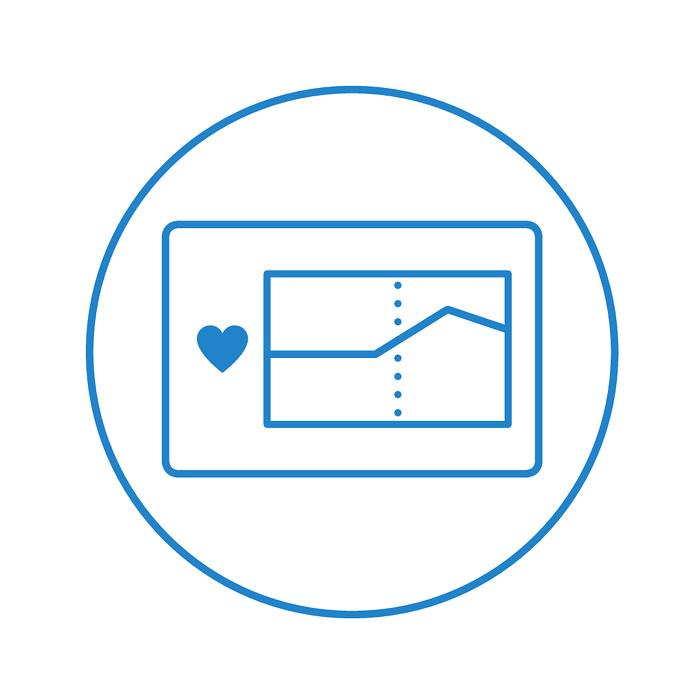
One Step Ahead
For Initiating a Meaningful Change
Heart failure patients often present with serious complications, highlighting the need for proactive care. HeartInsight provides a predictive alert to give you more time for contacting patients and initiating meaningful change. This may improve patient outcomes and reduce costly hospitalizations.
- 42 days alert time for proactive care.*
- Earliest notification of worsening heart failure signs even before patients report symptoms.4
- Available for your new and existing ICD & CRT-D device patients.**
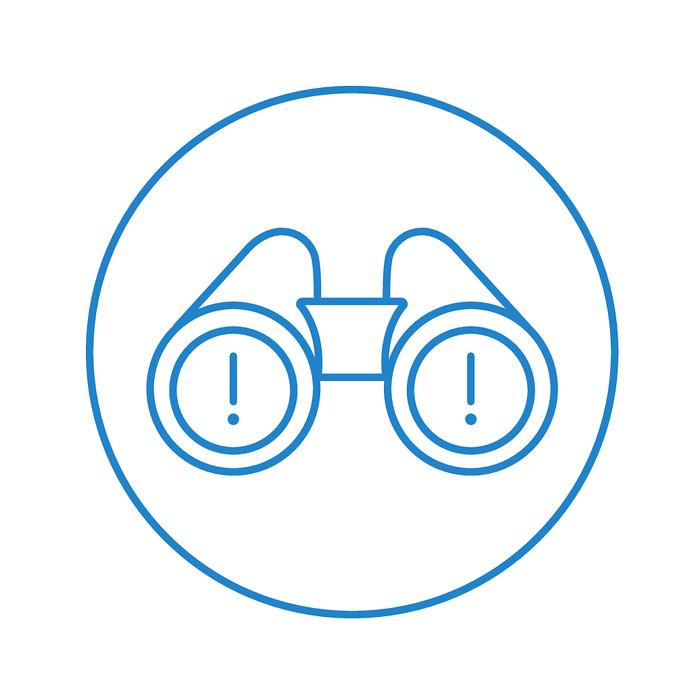
SELENE HF Multi-Center Study
The SELENE HF study assessed more than 900 patients and validated that the HeartInsight algorithm provides sensitive and timely prediction of impending heart failure decompensation with a low false-alert rate.
Key Findings
- 66% alert sensitivity, predicting 2 out of 3 heart failure hospitalizations.6
- 42 days alert time for proactive care.*
- Low alert burden, with <1 alert per patient year (ppy).8
- 0.7 false alert rate per patient year (industry-leading: one false alert every 17 months).5
All-in-One Alert
8 parameters combined into one score and trend.
HeartInsight’s sophisticated algorithm automatically combines 8 highly HF-relevant parameters in one score. When the score crosses a configurable threshold, HeartInsight provides a single, predictive alert identifying patients at higher risk of worsening heart failure. It is intended to allow clinical teams to care proactively and initiate a meaningful changes, even before patients may report symptoms.
- HeartInsight calculates and weighs the score daily.
- Triggers an alert notifying you when you need to be proactive.
Mean Heart Rate
Mean Heart Rate at Rest
Premature Ventriculation Contractions
Atrial Burden
Heart Rate Variability
Patient Activity
Thoracic Impedance
Baseline Risk Stratifier7 (optional)
The HeartInsight Clinical Workflow
Manage your patients remotely with a predictive alert intended to provide you more time for contacting them, even before they report symptoms, and initiating a meaningful change,

Monitor Your Patients Remotely with One Reliable Platform
- HeartInsight is integrated into BIOTRONIK Home Monitoring®.
- Easy plug-and-go setup.
- Automatic daily transmission without patient involvement – for 91% transmission success.6
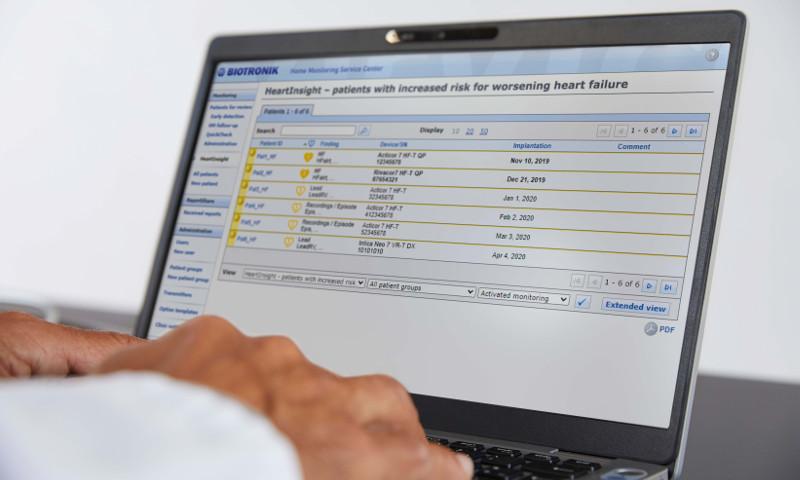
Get Notified by One Accurate Alert
- HeartInsight alerts you on increased risk of worsening patient condition.
- Our sophisticated algorithm combines 8 highly relevant parameters into one score, calculated daily.

Take Action Based on One Insightful Dashboard and Report ***
- Interpret all relevant information in one place – to make confident decisions.
- Provides swift EHR integration, enabled by DataSync.

Improve Outcome
This may ultimately result in improved patient outcomes, decreased clinical burden, and reduced costs associated with heart failure management.
AIAC 2022: Benefits and Impact of HeartInsight for Clinicians
Dr. Luca Santini (IT) explains what problems HeartInsight may help to solve in daily clinical practice in terms of clinical, efficiency and economic benefits. He highlights the importance of shifting from detection to prediction of heart failure.
AIAC 2022: Prevention of Hospital Readmissions with HeartInsight
Dr. Giosue Mascioli (IT) mentions that HeartInsight can help to reduce hospital readmissions which in turn means improved quality of life and economic savings.
AIAC 2022: Enhanced Patient Management with HeartInsight May Lead to Increased Patient Survival
Dr. Fabio Quartieri (IT) talks about the impact of HeartInsight on the patient management workflow and reduction of hospitalization, while emphasizing its potential to increase patient survival.
AIAC 2022: HeartInsight - A Predictor and Tool for Treating Heart Failure Patients
Dr. Antonio D’Onofrio (IT), the principal investigator of the SELENE HF study, talks about the impact of the study and HeartInsight in treating patients with heart failure
EHRA 2022: Efficient prediction of HF hospitalization with HeartInsight
Dr. Giovanni Luca Botto (IT) stresses the benefit of having a single-score algorithm to predict patients at risk of HF hospitalization and explains why he feels having a low false alert rate is imperative for clinical application of HF prediction tools.
ESC 2021: Future Direction of Remote Cardiac Monitoring
How alert-based remote monitoring and predictive heart failure analytics can help improve diagnosis and treatment efficiency of cardiac device patients. Prof. Miloš Táborský (CZ), Prof. Niraj Varma (USA) and Dr. Antonio D’Onofrio (IT).
Related Products
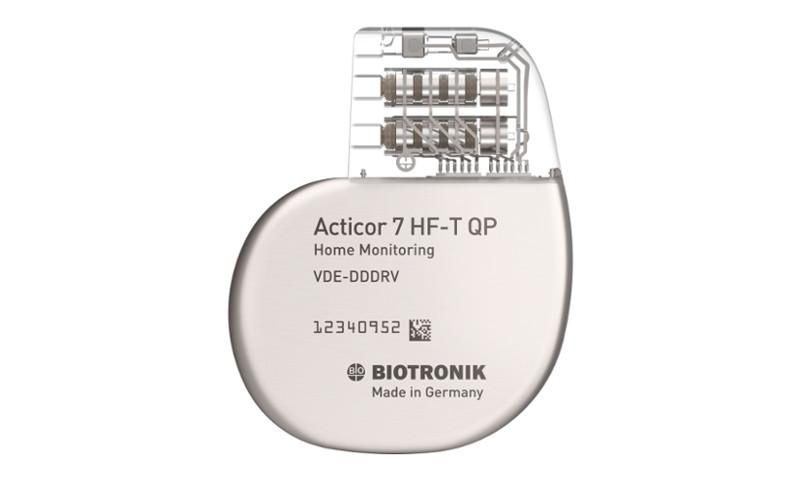
Cardiac resynchronization therapy (CRT) improves left ventricular function and clinical conditions in selected heart failure patients by pacing of both ventricles.
An implantable cardioverter defibrillator (ICD) is able to sense, detect and treat life-threatening cardiac arrhythmias.
With BIOTRONIK Home Monitoring clinicians are alerted about worsening patient status early on, giving them time to intervene proactively.
Contact
1. Ambrosy AP et al. The Global Health and Economic Burden of Hospitalizations for Heart Failure Lessons Learned From Hospitalized Heart Failure Registries. J Am Coll Cardiol 2014; 63:1123–33.
2. Gheorghiade M et al. Pathophysiologic Targets in the Early Phase of Acute Heart Failure Syndromes. Am J Cardiol; 2005; 96:11G–17G.
3. Ponikowski Pet al. HF preventing disease and death worldwide. ESC Heart Fail 2014 Sep;1(1):4–25.
4. Comparison of alerting time in validation studies: D’Onofrio et al. Europace 2021 doi:10.1093/europace/euab170; Boehmer JP et al. J Am Coll Cardiol Heart Fail. 2017 Mar, 5 (3) 216–225; Cowie MR et al. European Heart Journal (2013) 34, 2472–2480 doi:10.1093/eurheartj/eht083.
5. Comparison of false alert rate in validation studies: D’Onofrio et al. Europace 2021 doi:10.1093/europace/euab170; Boehmer JP et al. J Am Coll Cardiol Heart Fail. 2017 Mar, 5 (3) 216–225; Cowie MR et al. European Heart Journal (2013) 34, 2472–2480 doi:10.1093/eurheartj/eht083.
6. D’Onofrio A et al. Combining home monitoring temporal trends from implanted defibrillators and baseline patient risk profile to predict heart failure hospitalisations: results from the SELENE HF study. Europace 2021 doi: 10.1093/europace/euab170.
7. Home Monitoring daily parameters combined with 1 baseline risk stratifier based on the Seattle Heart Failure Model (Levy WC, Mozaffarian D, Linker DT, Sutradhar SC, Anker SD, Cropp AB, Anand I, Maggioni A, Burton P, Sullivan MD, Pitt B, Poole-Wilson PA, Mann DL, Packer M, 2006. The Seattle Heart Failure Model: Prediction of Survival in Heart Failure. Circulation, 113:1424-1433.)
8. Data on file.
* 42 days refers to median alert time.
** Available for Acticor/Rivacor, Ilivia Neo/Intica Neo, Ilivia/Intica /Inlexa -5 and -7 series ICD DX/DC and CRT-D.
*** Based on current standard practice and clinical judgement
Disclaimer: HeartInsight is approved and available in CE regions only.

